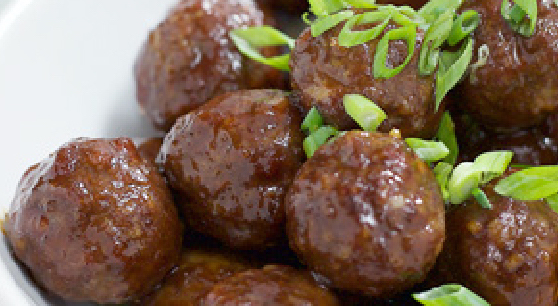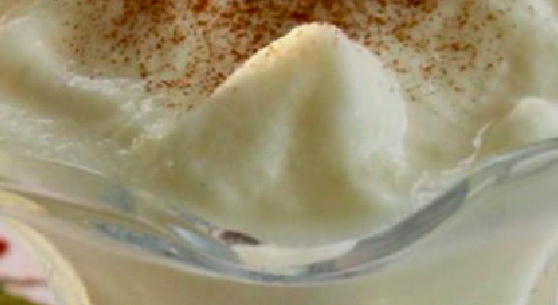Submitted Photos

My first memory of Dirk Stewart was from the early 1950s when, in an attempt to make me a top cowhand, my father bought me two Shetland ponies names Trigger and Choo Choo. It was a bad idea because, like many Shetlands, they behaved more like rodeo stock. I wanted no part of these ponies.
Dad told me he was going to get one of the cowboys from Seven J to come to town and teach me how to ride on Saturdays. I can’t say I was overjoyed, but when I met Dirk, I began to ride Choo Choo. The enjoyment was not from the horse—it was from being able to spend time with Dirk. As we rode around the few acres in Madisonville, he would tell stories. Sometimes he would look at you and smirk, then ask you something or embarrass you (like a comment on how you mounted your horse and fell over the other side) and then break out in his unique laugh no one would forget. It started with a war whoop and a handclap and continued into a loud screaming, bent over giggling laugh. The world stopped until he finished.
Dirk would show up at our Madisonville house in the early evening every Saturday. We had a cook named Luther Johnson, who was the best cook ever. When Dirk showed up, Luther, in his apron, would grab the biggest butcher knife in the kitchen and head out to the back porch to confront Dirk, “What chu want?” Dirk would reply, “I need to see Mr. Parten.” “Naw, you don’t,” Luther said as he advanced and Dirk retreated. Then Dirk would advance and Luther retreat. “I need to see Mr. Parten.” Luther advancing, “He don’t want to see you.” Back and forth. Back and forth. You might think I would be afraid of two black men acting as if they were about to have a knife fight on our back steps, but I knew they were just having fun, reenacting something from their past. Soon enough, they would both break into peals of laughter. Luther would go in and get my father. They would parlay. Dad would reach in his pocket and bring out some money which he presented to Dirk and shook hands with him. It happened every Saturday.
Dirk, his brother Forky, and his son Red would always have to come over to my father’s Greenbriar Ranch just north of Madisonville whenever it was time to spray or dip cattle, because it was still almost all brush—and no one else could get the cattle out of the brush as good as Dirk. It was said that there was a man in Bedias in those days who could not round up his cows from the brush country in northern Grimes county. He put a $100 bounty up for anyone who could pen his herd. Dirk collected the bounty. In the job of cowboy, Dirk was the best. He knew every cow in every herd by name. He knew their temperament, their quirks, and their mood. Dirk always seemed to know what a cow was going to do before she knew herself. He was the best cowboy I ever knew.
Every summer at Seven J, we would get all the hands together to put the barge in the Trinity River to water some of our crops. One day, Papa Luis, who had come recently from Mexico to Seven J, was on the team. Papa Luis wore a huge sombrero and used to regale us kids with the number of curse words he could string together. I believe it was his only English. One day, Papa Luis fell off the plank that provided access from the bank to the barge. He couldn’t swim and went under. Dirk, who couldn’t swim either, jumped down flat on the board, reached under the water, grabbed Papa Luis and dragged him to the bank. It was the way homefolks worked, and Seven J was home to Papa Luis, to Dirk, to me, and to many others. Everybody had his job and did it to his best.
I only know of one time Dirk left his home on Seven J to seek his fortune elsewhere. The money that could be won at rodeos sounded pretty good. He rodeoed far and wide, being allegedly the first black man to win a bull riding contest in New York’s Madison Square Garden. He also appeared in local rodeos, where he liked to ride bulls two ways to amaze the crowd. He had a Brahman bull of his own he had trained. He would take his turn as a contestant and win or lose as luck would have it. Later, he would ride into the arena atop his bull with bull riding gear and a halter.
My father had given a particularly bad Brahman bull from Seven J to the Madisonville Sidewalk Cattlemen’s Association because he would not stay in a fence. One night at the rodeo, after the bull threw his rider, he tore through the arena fence and disappeared into the brush up toward where Lake Madison is today. Rodeo management went after him horseback the next day, but could never rope him in the brush. Dirk heard about it, rode off alone into the brush on his bull, and came back a few hours later with the escaped bull tethered to his. No one knows how he did it.
By 1963, Dirk was home, and big things were happening at Seven J. They were building a feed mill and alfalfa dehydrating plant. I was now a teenager, splitting time between cowboying and working in the new feed mill. The manager of the feed mill had come from the Imperial Valley of California and attempted to bring some big ideas from California to the Trinity bottoms, having no idea how difficult it was to bring any new idea to the area.
I was not witness to his worst disaster, but heard Dirk tell of it many times. The Californian had convinced my father that it would be more economical to avoid bringing the cattle into the stock pens monthly for insecticide spraying and instead dust them from above with an airplane. The cowboys were not consulted on their thoughts about the California plan but were told to do their part. I will tell the story with all the theatrics Dirk used. I think it was his favorite story.
“They tole us to push them cows up in the corner of the Cochran Farm and they had an ahrplane that was going to fly over and drop dust on the cows. They told us the dust wouldn’t hurt us. So, we did what we was tole and pushed them cows up against the fence with Creek Pasture and Gin Lot. The cows was getting kind of nervous since the gate wasn’t open for them to go out. Then one looked back at us and snorted and bellered. Then all of them and our hawses looked back at the approaching noise. All saw an ahrplane coming at them fast and loud. It flew right over them about 15 feet off the ground dropping all that special dust. The cows started running full speed. They didn’t even see the fences they run over. They tore down a quarter mile of fence in no time, crossed the levee, swum the creek, and was gone. We couldn’t do nuthin’ cause our hawses had gone to pichin’ and buckin’ and put all of us on the ground afoot. They took off with the cows. That ahrplane man, he come back around to make another pass, and he don’t see nuthin’. No cows, no hawses, no fence. Just five of us looking up at him afoot. He say, ‘Whea de cows go?’ We got a ride to Mississippi Hill and caught our hawses. We caught up with the cows about five miles on the road to Lovelady. Some we didn’t get til past Lovelady. We don’t ev’r want to do dat again.”
By the time Dirk was finished, he and his audience were crying tears.
In 1990, we experienced a terrible flood on the Trinity. In May, floodwaters broke the levee above Seven J and flooded the land to a level so high that water was flowing over a high sand ridge and into Seven J. All our cowboys and neighbors were pushing cattle away from the rising water, cutting fences as they went. They recovered almost all cattle that would have been drowned by the flood by walking them single file down the levee to the river bridge, then across the bridge to high ground in Madison County and safety. We told Dirk he had to pack and leave because, in all probability, his house would go under water. He said he would think about it. About dark, I sent someone down there to get him since he would not come out. The driver had to drive through some high water and knew he did not have much time to return. Dirk refused and the driver returned and reported to me his failure to evacuate Dirk. I then sent a tractor to his house—the water was now too deep for trucks—and told the driver to bring Dirk. “Tell him I said so or I will come down there myself and get him.” Dirk got on the big John Deere and came, the last man out. His house and belongings were washed away.
As time went on, Dirk educated many a cowboy. My son Austin had a chance to ride with him when he was in his teens. He and Dirk coming back from Madisonville even had a head-on collision on the Trinity River bridge with an oilfield truck which was dodging a right-of-way mowing tractor. Dirk was hurt. The truck was totaled.
When Dirk was 72, Seven J received a notice from the State of Texas that it would garnish all of Dirk’s salary for non-payment of child support. We questioned Dirk and he insisted that he didn’t know of having any minor children. We talked Dirk into getting a DNA test to exclude him from paternity. As it turned out, he was the father and was never told by the mother. He then said if they were his children, he wanted them with him to give them a much better home experience than they had in Crockett. He was eligible for Social Security, which would provide medical care for his children. So, we helped him through all the smoke and mirrors of the Social Security Administration. Dirk was born on February 23, 1924 in Grimes County, Texas and had witnesses, family pastor, and the family bible as proof. But he did not have a birth certificate. They did not provide black people with birth certificates in Grimes County in 1924. The fact that he had been paying into Social Security almost since its inception was not considered evidence. He had to have a birth certificate to make a claim to Social Security. The County Judge of Grimes County, hearing of this matter, called Dirk to his office, wrote out a birth certificate, signed it and had it registered on the county record to the wonderment of the County Clerk. He then sent Dirk off with a certified copy of his birth certificate, which was duly issued 72 years late, and Dirk applied and got custody of his children.

Dirk lived out his days on Seven J, then with family in Crockett. He passed away on July 23, 2002 and is buried in the Mississippi Hill Cemetery on Seven J, where we will all end up someday. For me, it will be a great honor to be buried at Seven J alongside the best cowboy I ever knew.



